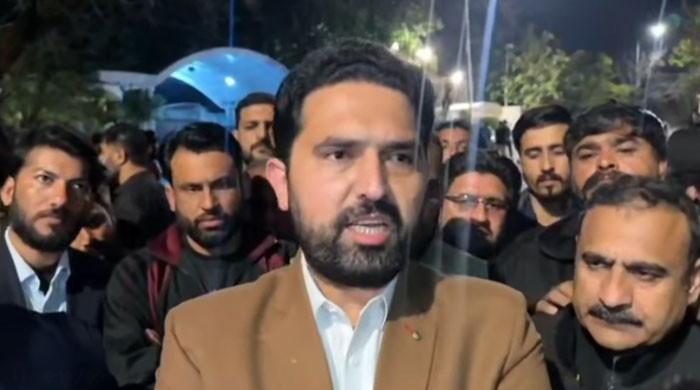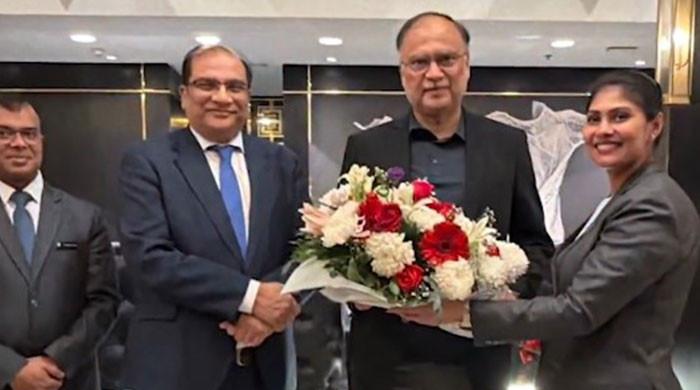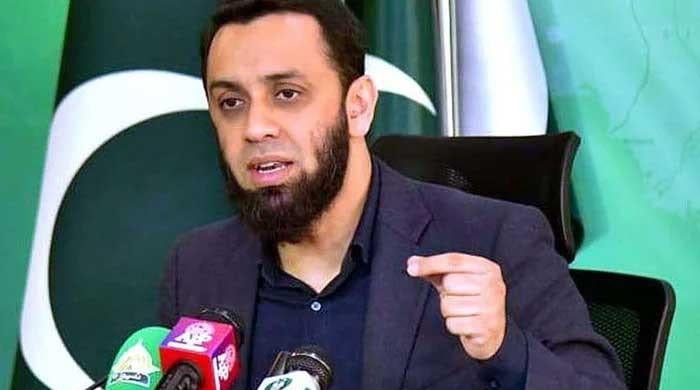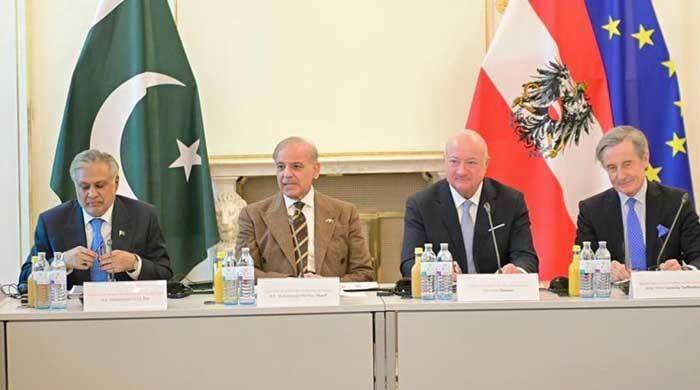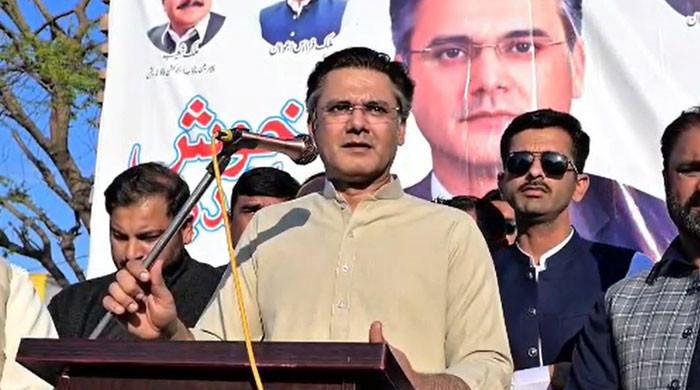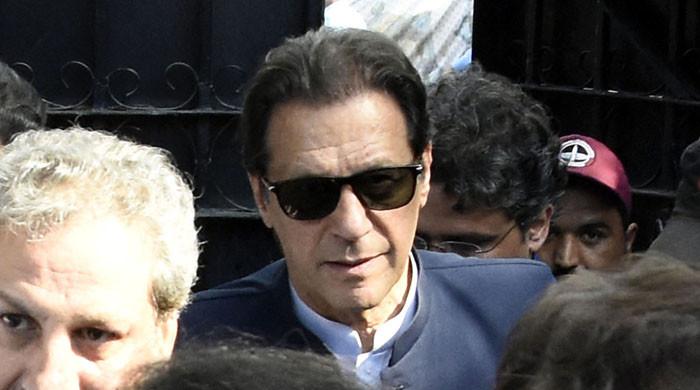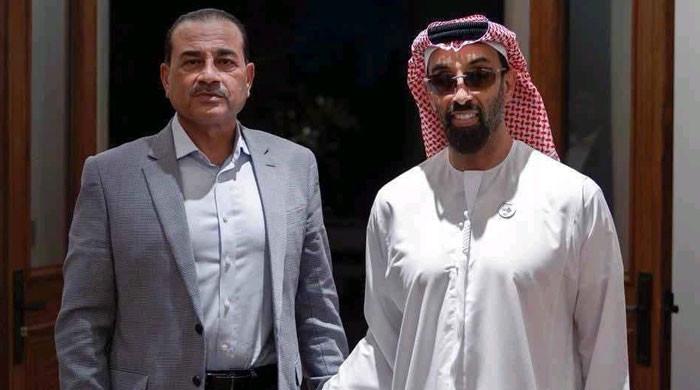FM Bilawal urges trade over aid in meeting with Blinken
We want to see growing ties between business communities of both countries, so it can benefit our economy, says Bilawal Bhutto
May 19, 2022
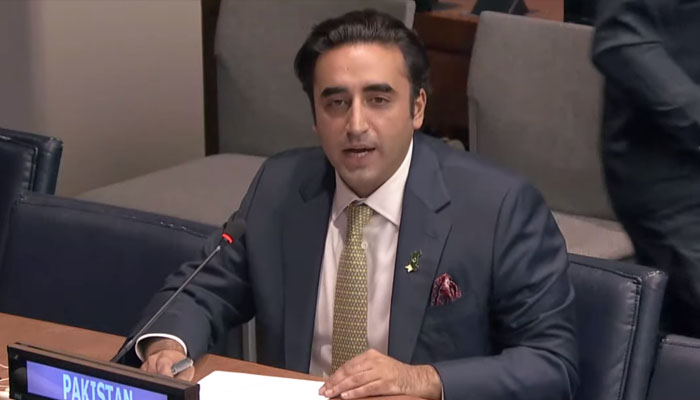
- Bilawal meets Blinken during US visit.
- FM says hunger has no nationality, poverty does not care about the colour of skin.
- Pakistan urges unity to tackle challenges of food security.
Foreign Minister Bilawal Bhutto-Zardari said he emphasised to US Secretary of State Antony Blinken in a meeting that Pakistan prefers trade over aid, Geo News reported Thursday.
FM Bilawal Bhutto is currently in New York on a two-day official visit to the US during which he held also meetings with UNSG Antonio Guterres and other international leaders.
A day earlier, Bilawal reached New York and met US Secretary of State Antony Blinken at the United Nations (UN) Headquarters, and later he attended the ministerial meeting on the "Global Food Security Call to Action."
During an exclusive interview with Geo News, Bilawal Bhutto said it’s a moment of pride for him to represent Pakistan at the UN.
“I am feeling proud to represent my country, Pakistan is engaging with the world and its narrative is being presented to the international community,” he added.
Speaking about his participation in the food security meeting, he said, “food security and water crisis are big issues of the country.”
Disclosing the details of the meeting with US Secretary of State Antony Blinken, FM Bilawal Bhutto said, “we have emphasised that Pakistan believed in trade over aid, and we received an encouraging response from him.”
“We want to see growing ties between businessmen, entrepreneurs and business communities of both countries, so it can benefit our economy,” he added.
On a question about following his mother and grandfather in representing Pakistan at the international forums, Bilawal said, “I would not claim to be able to fill the shoes of Zulfiqar Ali Bhutto and Benazir Bhutto as their legacy and roles are historic.”
“However, we will try to work hard to represent the wishes, demands and hopes of the new generation of Pakistan around the world,” said Bilawal.
FM Bilawal further went on to say that the new generation of Pakistan has such potential that we can achieve a lot if we work hard together.
Pakistan urges unity to tackle challenge of food security
In an address to a ministerial meeting on “global food security” at the United Nations Headquarters, the foreign minister stressed upon maintaining access to food and ending supply restrictions, export bans, hoarding, speculation and panic buying of food and fertilisers.
He underlined that supply chains should be kept fully operational, including for processing food and related logistics.
In order to mobilise action to address global food insecurity, US Secretary of State Antony Blinken hosted the ministerial-level meeting, bringing together a broad, regionally diverse group of 30-35 countries, including those most affected by food insecurity and those in a position to take action to strengthen global food resilience and security.
The foreign minister, in his speech, also called for the creation of a special food emergency fund under the UN auspices.
The United Nations and its relevant agencies WFP, FAO, IFAD, UNDP, he said, should be entrusted with coordinating and executing such an emergency food security plan and fund.
“The countries in a position to do so must ramp up production of wheat and other grains and fertilizer.
Support must be provided to enable food producers, especially smallholders in developing countries, to contribute to increases in local and national food production through adequate access to seeds, fertilizer and finance,” he suggested.
About another part of the emergency plan, he said food prices should be moderated, especially for vulnerable developing countries, through appropriate international, national and market mechanisms.
The emergency grants and concessional financing must be provided to countries experiencing social and financial distress to secure adequate food and related supplies.
Bilawal said that food insecurity had been growing progressively in the developing countries due to low productivity, water scarcity, land degradation, lack of agriculture infrastructure, inadequate application of new technologies, unfair trade practices and climate change.
The COVID-19 pandemic, and the consequent economic crisis, disrupted agricultural and food supply chains, enlarged poverty, escalated commodity prices and eroded the purchasing capacity of the millions of the most vulnerable people in the developing countries, he added.
Citing another factor, the foreign minister said the ongoing war in Ukraine, and the accompanying restrictions on food supply were the crowning blow for the poor, prices of food and the energy had spiralled food and related commodities, including fertilisers were in short supply and unaffordable for the poorest people and the poorest countries – in Africa, Afghanistan and elsewhere.
The foreign minister said that it was essential to promote sustainable systems of food consumption and production, stop waste and pollution, conserve water, promote forestation and respect biodiversity and natural habitats.
The foreign minister further stressed that beyond the emergency plan of action, they must undertake steps to address the structural problems impeding global food security and the implementation of SDGs 1 and 2.
These steps should include, he said, rationalising international agricultural trade, particularly the elimination of the massive agricultural subsidies provided by certain richer economies which distort global markets and make it impossible for farmers in the developing countries to produce food at competitive prices.
Bilawal called for significantly expanding investments in sustainable agriculture infrastructure in developing countries to facilitate the production, storage, transport and distribution of food products and agricultural inputs.
He also underscored the efforts for increasing the application of new and breakthrough agricultural technologies and techniques, including digital technologies, in developing countries through access and transfer on concessional and preferential terms.
“Mobilise adequate concessional finance for the developing countries, including through debt relief, enlarged ODA, reallocation of half of the unutilized SDRs, and fulfilment of the promised $100 billion in climate finance,” he added.




